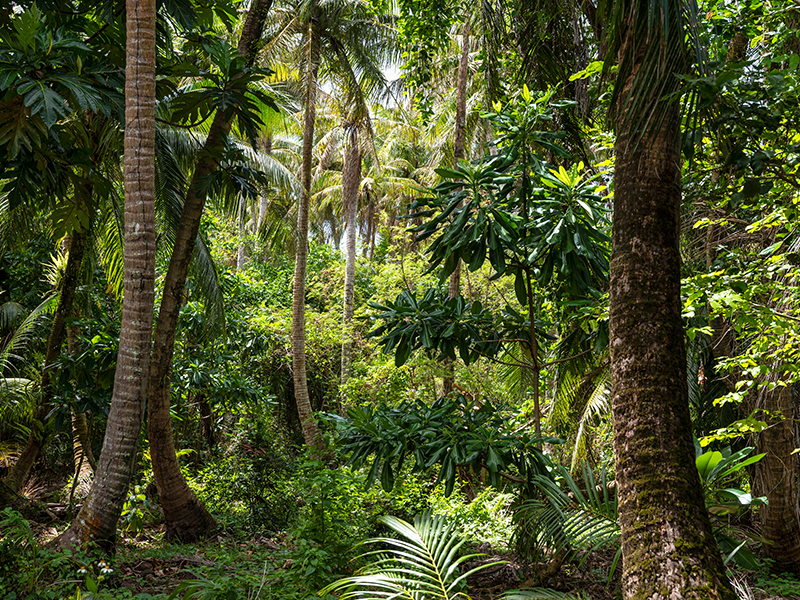Using a functional trait approach for designing and implementing resilient landscapes in Guam

This project aims to revive the native plant community in Guam by transitioning from non-native acacia trees to native species. The objective is to build resilient ecosystems using a functional trait-based approach to address, directly or indirectly, five of the key issues outlined in the Guam Forest Action Plan. The project will proceed in two phases. The first phase will involve surveying existing acacia plantations and collecting functional trait data on native tree species. The second phase will focus on a field demonstration of restoration sites and testing the effectiveness of restoring native woody cover to reduce fuel loads and fire risk.
Expected results include the development of scientific papers, forums, webinars, and fact sheets to disseminate knowledge and technology transfer products to stakeholders conducting forest restoration in Guam and U.S.-Affiliated Pacific Islands. Collaborations with partners, such as the Institute of Pacific Islands Forestry, will ensure the success and broader impact of the project.
PROJECT DETAILS
FUNDED:
FY2024
PI:
Susan Cordell
Research Ecologist, Institute of Pacific Islands Forestry, U.S. Forestry Service
Co-Is:
Amanda Uowolo
Ecologist, IPIF, U.S. Forest Service
Rebecca Ostertag
Professor of Biology, UH Hilo
Ruddy Estoy
Forest Stewardship Program Manager, Guam Dept. of Agriculture
Christine Fejeran
Forestry and Soil Resources Division, Guam Dept. of Agriculture
Romina King
Associate Professor of Geography, University of Guam

